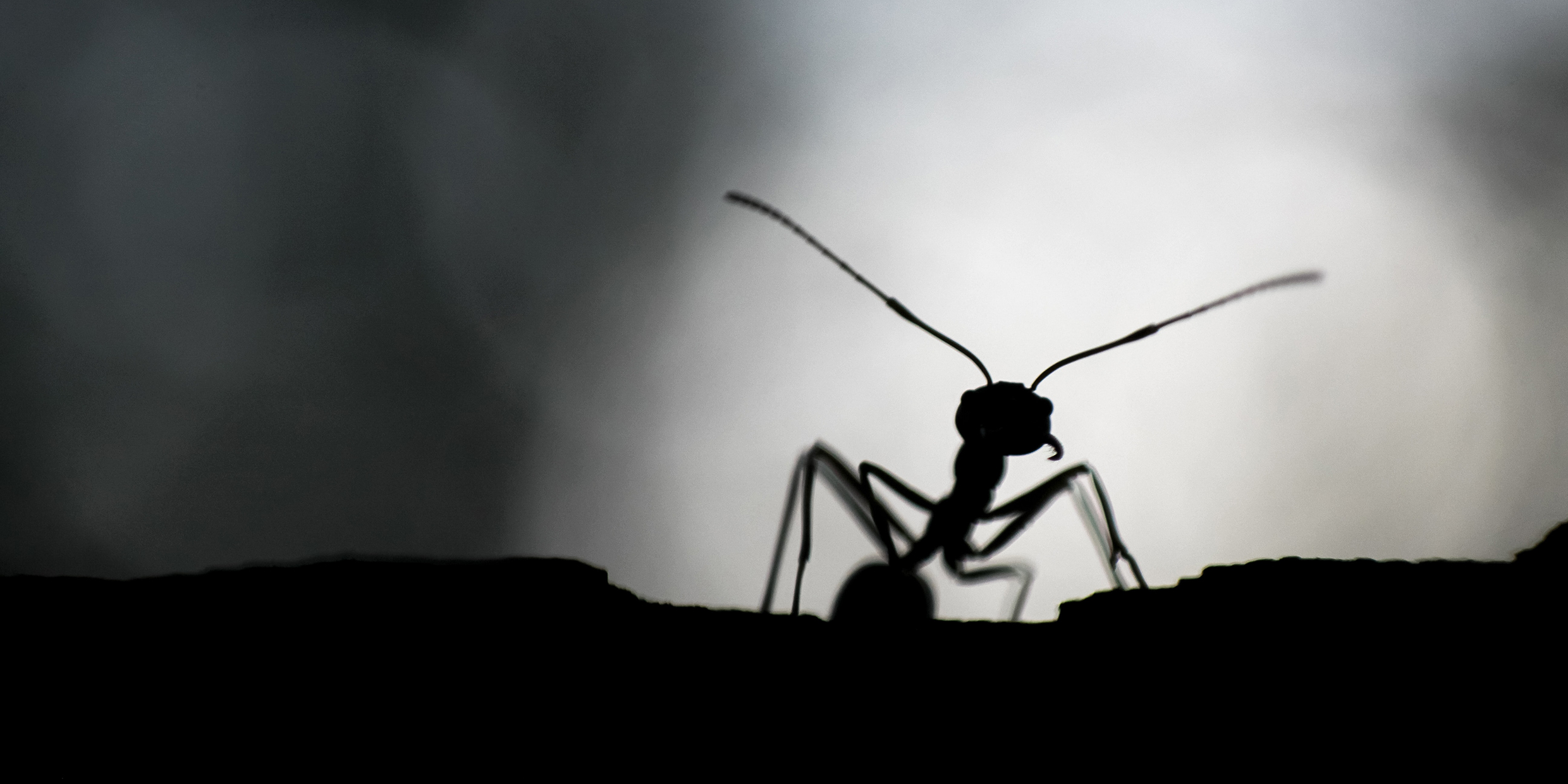Originally published 19 July 1999
Some weeks ago I described certain South America ants that tend fungal gardens in underground chambers. They leave the nest to cut bits of leaves from nearby vegetation. These they carry home, chew into a pulp, and use to manure their crop, a mushroom fungus. The fungus produces “fruits” called gongylidia which the ants eat.
Like all gardeners, the ants must watch for “weeds,” in the form of an unwanted fungus that intrudes upon the food crop. If not controlled, these interlopers can destroy a garden.
The ants use a pesticide to fight the “weeds.” Antibiotic bacteria living on the bodies of the ants keep garden “weeds” in check. These bacteria belong to the same genus—Streptomyces—from which are derived more than half of the antibiotics used by humans.
Even such complex living systems as that which embraces the ants, their crop fungus, the weed fungus, and the antibiotic bacteria can be accounted for by natural selection acting on random genetic mutations.
Or so I claimed.
A thoughtful reader challenged me. He referred to biochemist Michael Behe’s book, Darwin’s Black Box, that makes the counter-argument that certain biological systems are “irreducibly complex” — that is, there is no conceivable sequence of mutations that could lead to the final system by natural selection, because no single mutation confers an “advantage.” The system only “works” if all the parts are present: in this case, presumably, ants, crop fungus, weed fungus, and antibiotic.
According to Behe, Darwinian explanations of irreducibly complex systems are a “black box.” We are asked to simply assume that what is inside the box — some hypothetical sequence of random mutations acted on by natural selection — will explain the world.
In place of Darwinian explanations Behe offers something called “intelligent design,” which is a fancy new term for “God.” But, of course, Behe’s “intelligent design” is a black box of another sort.
Behe’s argument has been rebutted in many places: for instance, by biologist Richard Dawkins in his book Climbing Mount Improbable. However, as my correspondent suggests, no evolutionist has yet specified the sequence of events that led to the complex system of ants, fungus, “weeds,” and pesticide.
Is the system “irreducibly complex?” Time will yield the answer.
The difference between Darwin’s black box and Behe’s black box is that Darwin’s box can conceivably be pried open. And that of course is what science is all about. If we just say up front “God did it, any old way he pleased,” then we will never understand how the world hangs together or what makes it tick. The causal laws of nature may or may not be the work of a personal god, depending upon your theological persuasion, but by discovering them we free ourselves from the whims of divine capriciousness.
How might Darwin’s black box be pried open?
By confidently searching for an ever more complete fossil record, as opposed to simply assuming that “gaps” are the province of special creation.
By turning evolution into an experimental science. For example, evolutionary biologist Richard Lenski of Michigan State University has been watching bacteria evolve in the laboratory since 1988, not so long ago on a human timescale, but 24,000 generations ago for a microbe. A new generation on bacteria is born every 3 or 4 hours, mutating and adapting to new experimental conditions under the watchful eyes of Lenski and his students.
By running high-speed computer simulations of mutation and selection. For example, Swedish biologists Dan Nilsson and Susanne Pelger have performed an elegant computer simulation of the evolution of an eye, an organ which special creationists have always assumed is “irreducibly complex.” They started with a flat light-sensitive patch of skin, and in a few hundred thousand generations of random mutation and selection ended up with a good “fish eye” with a lens.
By learning more about the genetic code and how genetic mutations manifest themselves in an organism. Sometime within the next year or so scientists will have achieved a complete chemical transcription of human DNA. The genetic codes of many simpler organisms have already been transcribed.
And so on.
We should not be intimidated by Darwin’s “black box.” It is one of the most transparent boxes ever devised by the human mind, certainly more transparent than the ever-inscrutable mind of God.
And in spite of what you will hear from religiously-motivated critics, organic evolution is one of the firmest facts ever established by science.
Discovering a plausible Darwinian mechanism for how leafcutter ants evolved their complex synergy with crop fungus and pesticide bacteria poses no threat to the human spirit. Rather, as Harvard biologist Stephen Jay Gould writes in a recent issue of Science: “Evolution is true — and the truth can only make us free.”
But an evolutionary description of the world certainly does not exhaust our quest for meaning. Gould continues: “When we stop demanding more than [factual] nature can logically provide…we liberate ourselves to look within. Science can then forge true partnerships with philosophy, religion, and the arts and humanities, for each must supply a patch in that ultimate coat of many colors, the garment called wisdom.”



